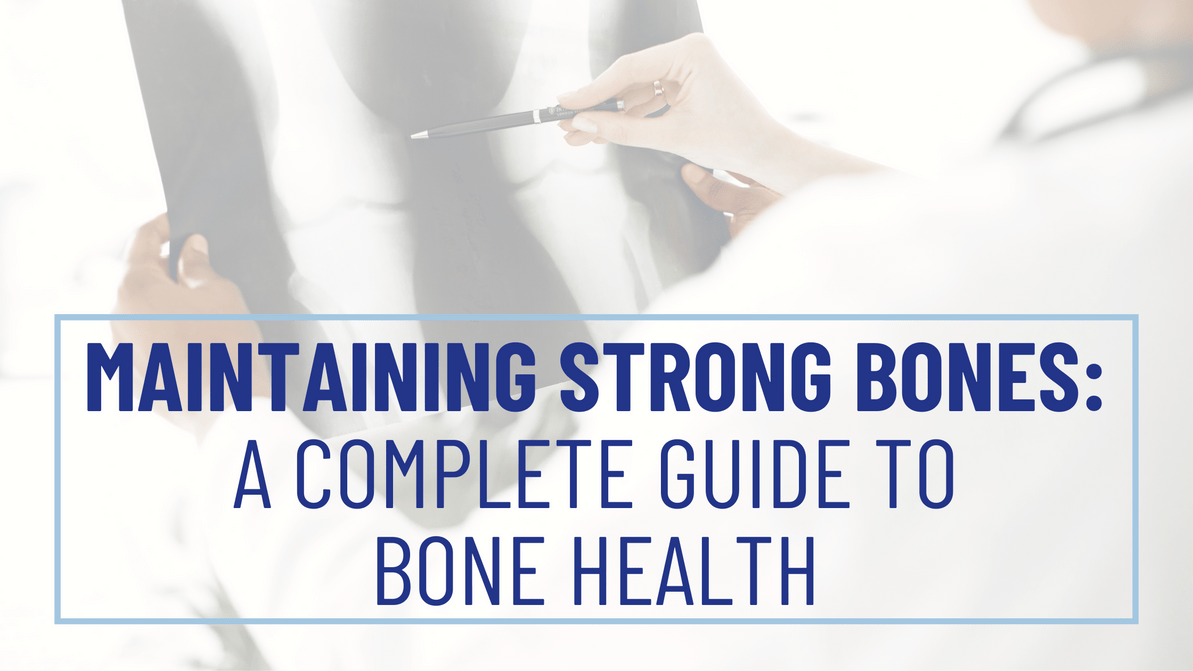Maintaining Strong Bones: A Complete Guide to Bone Health
Bones play a crucial role in our bodies. And yet, when we think of health, of being fit, we rarely think of them. Bone health is easier to achieve than you think. And no, you don’t have to eat insane quantities of dairy.
Diet, exercise, and other lifestyle factors all have a say in how strong our bones are. Here’s everything you need to know to keep your bones healthy.
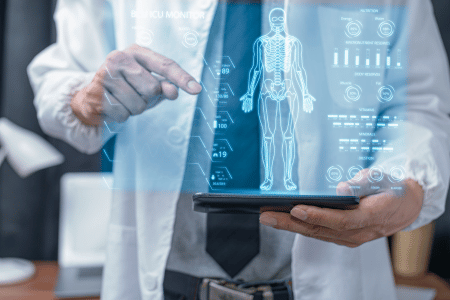
Understanding bone health
Strong bones mean a stronger body, more resistance to effort, and fewer risks of fractures. Contrary to popular belief, our skeletal system is not entirely static. From the day we’re born, our bones go through changes. When we’re young, the body makes more bones, increasing your bone mass.
We reach peak bone mass at around age 30. From here, the body begins to slow down in its regeneration process. Bone tissue dies faster than your body can regenerate it, resulting in bone mass loss.
In extreme cases, this process leads to osteoporosis, a condition where bones are weak and brittle. How likely you are to develop this condition depends on how much bone mass you accumulate by age 30.
Factors that can impact your bone mass include:
- Sex. Women have less bone tissue than men, making them more likely to develop osteoporosis.
- Physical activity. People who exercise regularly have stronger bones and a lower risk of osteoporosis.
- Alcohol and tobacco. Smoking and drinking excessively can lower your bone mass at any age.
- Hormone levels. High thyroid levels can cause bone loss. Women lose bone mass during menopause or prolonged amenorrhea because of conditions like PCOS or hypothalamic amenorrhea. Men are not safe either, as low testosterone levels can lead to bone loss.
- Eating disorders. Restricting your calories too much and for too long can lead to nutrient deficiencies and loss of bone and muscle mass.
- Certain medications. Bone loss can occur from long-term use of certain medications, including corticosteroids and anti-seizure drugs. If you’re worried, talk to your doctor.
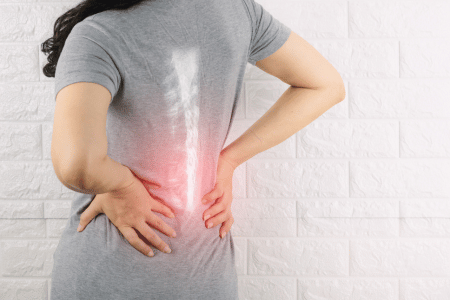
5 natural ways to build healthy bones
You can’t do anything against the natural aging process. But you can support your bones so that they are healthier and stronger and build an overall bigger bone mass. Here are a few easy tips.
1. Eat your veggies
Most food lists tailored for bone health will start with dairy and other foods rich in calcium. Few of them will put vegetables at the top. Believe it or not, research shows vegetables play a crucial role in bone health.
They’re high in vitamin C and antioxidants, protecting your body against cell damage. Green and yellow veggies can increase bone mineralization in both children and adults.
Plus, a study conducted on women over 50 showed that those who consumed onions had a 20% lower risk of developing osteoporosis. Another study on a similar group showed that consumption of things like broccoli and parsley decreased bone turnover.
2. Add protein
There’s a reason protein is often called the “building block of life.” It can help you build strong muscles and bones and assists in the natural tissue repair process.
There’s a twist, though. While research clearly shows too little protein can affect bone formation and breakdown, the opposite may also be true. Diets that are very high in protein can take away calcium from your bones.
Most people seem safe as long as they consume no more than 100 grams of protein daily and balance it with vegetables and other foods. In short, balance is, yet again, key.
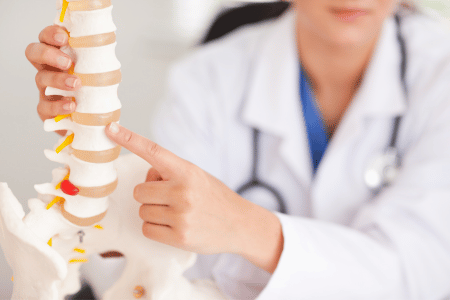
3. Exercise
Exercising, especially strength training, can help build and maintain strong bones and muscles. Several studies have proved strength training can help improve bone mineral density and slow down age-related bone loss.
For instance, a 12-month study conducted with women between the ages of 35 and 40 showed that those who exercised had more bone density than those in the control group.
Another study conducted over 32 weeks with both men and women having a mean age of 68.2 showed that exercise can reduce inflammatory and bone turnover markers.
4. Don’t forget the calcium and vitamin D
While they are not the only vitamins and minerals that support bone health, calcium and vitamin D are the most important. Most people need about 1,000 mg of calcium daily, though women and teens may need up to 1,200 mg.
We’re going to debunk one myth here: you don’t need to eat tons of dairy to get enough calcium in your diet. You can also get it from sardines or salmon. And, no, you’ll have no problem with calcium if you’re vegan, as long as you eat things like:
- Tofu
- Almonds
- Chia and sesame seeds
- Dark leafy greens (except spinach, chard, and beet greens)
- Beans and lentils
- Fortified cereal
- Fortified plant milk
- Figs
- Oranges
As for vitamin D, most people get it naturally through sun exposure. But you can also find it in foods like:
- Egg yolk
- Fatty fish
- Mushrooms
- Beef liver
And if you don’t get adequate sun exposure, nutritionfacts.org recommends 2,000 IU vitamin D supplements daily, ideally with the largest meal of the day.
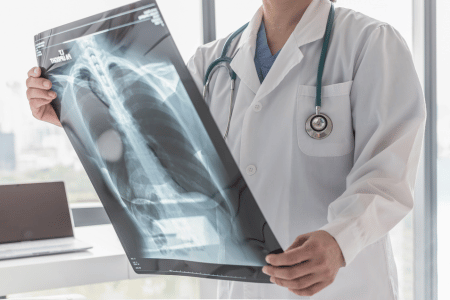
5. Maintain a stable weight
Maintaining a stable weight can be very helpful in keeping your bone density at a healthy level. Being underweight, especially due to a very restrictive diet, puts you at risk for bone and muscle loss, on top of nutrient deficiencies. Being obese, on the other hand, can put a lot of pressure on your bones and joints and increase your risk of fractures.
Repeatedly losing and gaining weight is also detrimental to bone health. A 2011 study on post-menopausal women showed that regaining weight after losing it did not repair bone loss. This further supports the evidence that multiple cycles of weight loss and weight gain can damage your bone health.
If you must go on a diet, remember to aim for a balanced one that will give you all the nutrients, vitamins, and minerals to support your health.
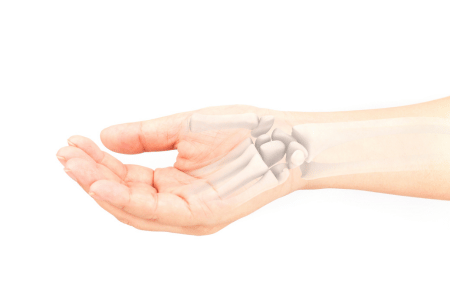
Supplements for bone health
We always advocate for getting your nutrients from food rather than supplements. But we also know that our hectic lifestyle can turn that into an impossible mission. Here are the nutrients you need to prioritize for bone health and may need to supplement.
- Calcium. Many foods contain calcium. But sometimes, your body may have a more challenging time absorbing it. Calcium supplements come in many forms and doses, so talk to a doctor before choosing the one for you. Hypercalcemia, while rare, can be an issue, so you don’t want to over-supplement.
- Vitamin D. Also known as the sun’s vitamin, vitamin D can be hard to get during the fall and winter. You may also need to avoid the sun to protect your skin health. Plus, some sunscreen lotions can interact with how well your body absorbs this great vitamin. You’ll often find it in supplements mixed with calcium or other vitamins, but you can also get it as a standalone supplement.
- Vitamin K. You know it as an essential vitamin for blood clotting, heart health, cognitive function, and even skin health. But vitamin K can also help bone mineralization and may reduce fracture risk. Studies also showed it is an effective aid in the fight against osteoporosis for postmenopausal women.
- Magnesium. This all-mighty mineral helps convert vitamin D into an active form that improves calcium adsorption. A 2014 study showed that those who took 400 mg of magnesium daily had higher bone density than those who didn’t.
- Collagen. A type of protein, collagen is in our bones, skin, tissue, muscles, tendons, and cartilage. Studies showed positive outcomes in those supplementing with collagen peptides for issues like arthritis. In postmenopausal women, collagen helped improve bone mineral density. The only downside is that none of these effects will appear overnight, and you’ll often need to take collagen for months or even years to see results.
- Omega 3. The final nutrient on our list, omega 3 is found in fatty fish, flaxseeds, chia seeds, and more. Several studies showed that omega 3 is a powerful antioxidant that can also protect or at least slow down age-related bone loss.
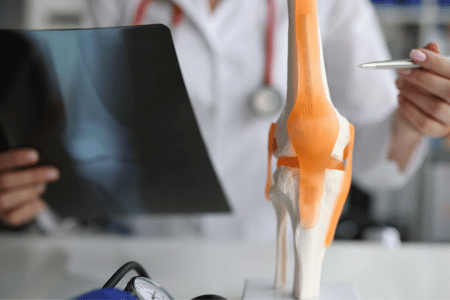
The bottom line
Strong, healthy bones are essential for a strong body. There’s nothing you can do to prevent aging and the bone density loss that comes with it. But you can support your body and skeletal system to keep it stronger for as long as possible. A balanced diet, along with moderate exercises, will be a great first line of defense.
Supplements can also help, especially when life gets a little hectic and your diet could be better. If you don’t know what to choose, we recommend the Ultimate Joint Cartilage Complex, made specifically to support your body, reduce inflammation and pain, and keep your joints healthy and happy.
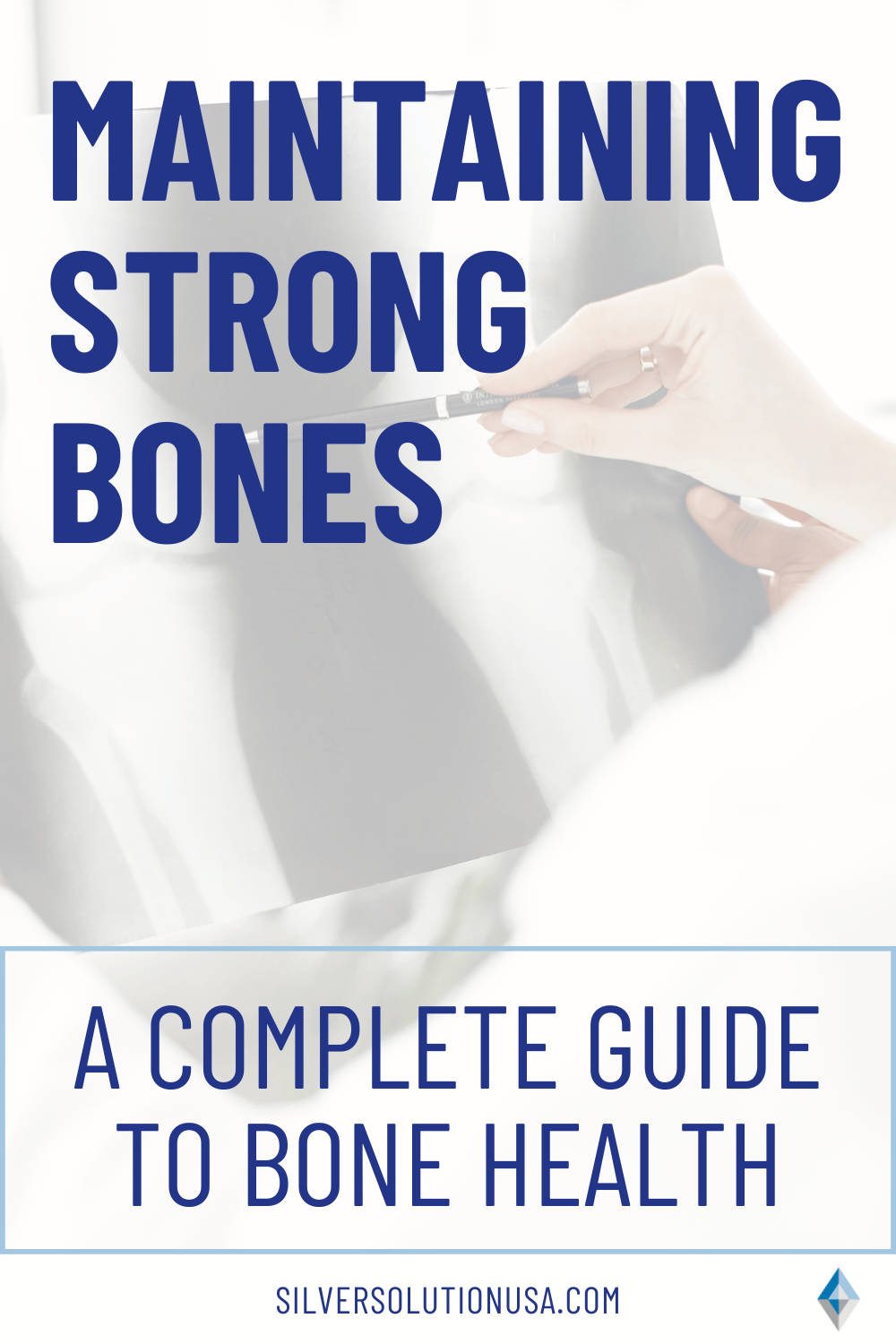
Health/Medical Disclaimer
This blog post does not provide health or medical advice. This blog post is for informational and educational purposes only and is not a substitute for professional health or medical advice. Before taking any actions based upon such information, we encourage you to consult with the appropriate medical and healthcare professionals. We do not provide any kind of health or medical advice. The use or reliance of any information contained on this blog is solely at your own risk.
Sources
https://pubmed.ncbi.nlm.nih.gov/26358868/
https://pubmed.ncbi.nlm.nih.gov/20519562/
https://pubmed.ncbi.nlm.nih.gov/19240657/
https://pubmed.ncbi.nlm.nih.gov/19240657/
https://pubmed.ncbi.nlm.nih.gov/12612169/
https://pubmed.ncbi.nlm.nih.gov/9614169/
https://pubmed.ncbi.nlm.nih.gov/17140871/
https://pubmed.ncbi.nlm.nih.gov/23623588/
https://pubmed.ncbi.nlm.nih.gov/25713787/
https://pubmed.ncbi.nlm.nih.gov/26588353/
https://pubmed.ncbi.nlm.nih.gov/21852813/
https://pubmed.ncbi.nlm.nih.gov/19450370/
https://pubmed.ncbi.nlm.nih.gov/24500155/
https://www.ncbi.nlm.nih.gov/pmc/articles/PMC5793325/
https://pubmed.ncbi.nlm.nih.gov/11071580/
https://nutritionfacts.org/topics/vitamin-d-supplements/
Recent Posts
-
Are sunscreen ingredients harmful?
Sunny days can bring a lot of fun. Going out for a swim, spending time in nature, or relaxing on the …18th Mar 2024 -
The Veggie Debate: Does Cooking Vegetables Destroy Nutrients and the Best Ways to Cook Them
Vegetables are one of the healthiest foods you can choose. Some people downright hate them, while so …4th Mar 2024 -
Best Foods for COVID Recovery and Prevention
A few years ago, a new virus took the world by surprise. COVID-19 may look like the flu on the surfa …19th Feb 2024

